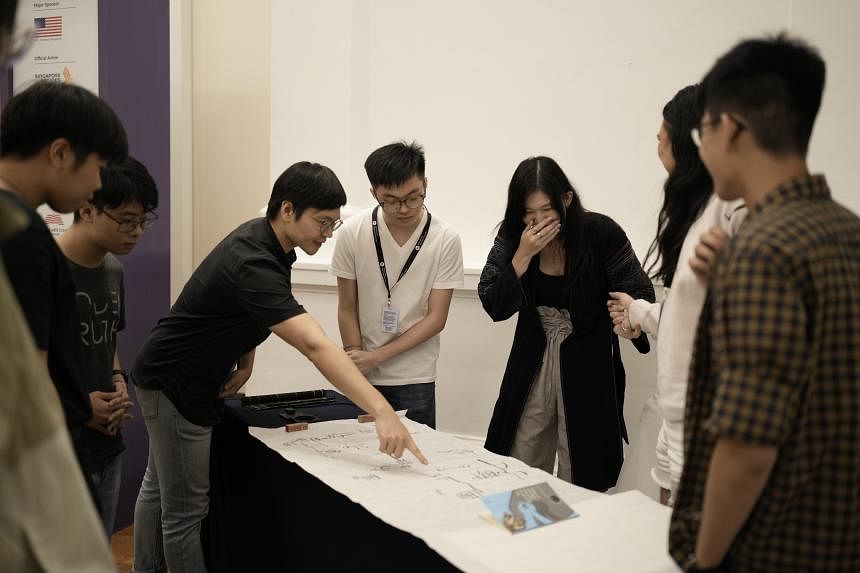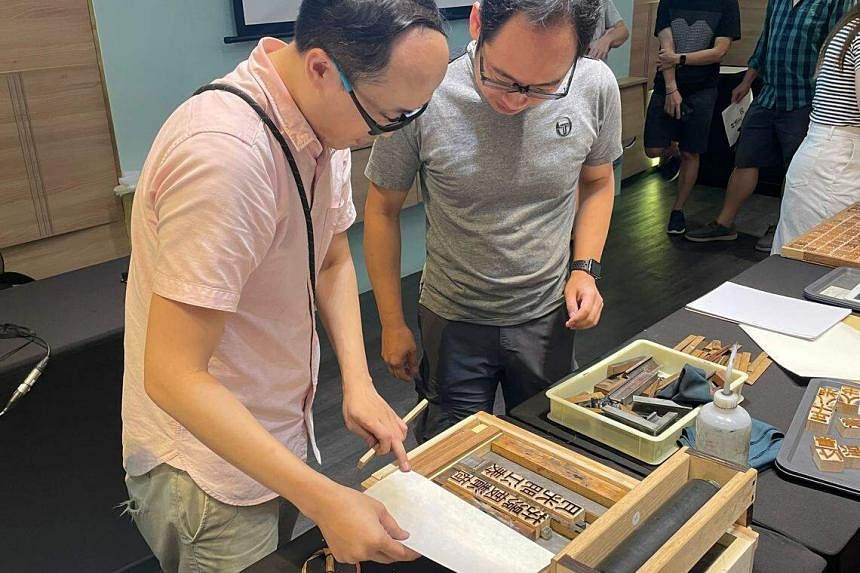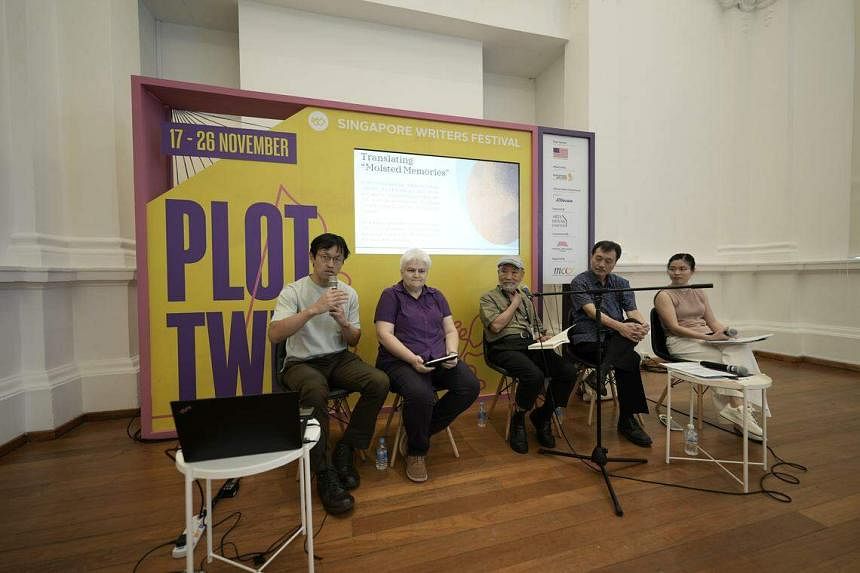
Multidisciplinary artist Zheng Jialei (woman in black) responding to the words of poet Tse Hao Guang (man pointing) using an invented calligraphic script. PHOTO: NICHOLAS YEO
SINGAPORE - Collaboration is the lifeblood of poetry, as home-grown poets demonstrated on Nov 17 and 18 at the Singapore Writers Festival.
Writer Yap Hao Yang, founder of youth literary platform sploosh!, paired two artists and poets on the opening night in an intimate performance, (Re)visiting Sing Lit, which showed how poetry could thrive at the interstice of words and images.
Parts of a torched guzheng (Chinese zither) which visual artist and performer Marla Bendini passed around the room, was a resonant reply to poet Andrew Kirkrose Devadason’s reading of his twin cinema poem, In Endless Iteration, that touched on Eve’s creation from Adam’s rib. Twin cinema is poetic form where two separate columns of poetry may be read separately, or across, as a single poem.
Devadason explained why poetry lends itself to collaboration: “Working with something like language, poets are lucky in that we are working with basically the connective tissue of most of the world around us.”
Poet Tse Hao Guang, who recited his painterly poems from The International Left-Hand Calligraphy Association (2023), was paired with multidisciplinary artist Zheng Jialei, who responded by writing in an invented script made from computational codes and emoji that resembled the Sinitic script.
Poetry’s relationship to print and design was also explored in The Art Of Poetry And Letterpress, a Chinese-language workshop conducted on Nov 18 by poet and academic Tan Chee Lay and Sun Yao Yu, founder of letterpress heritage studio Typesettingsg.
The heritage behind the materiality of the printed word risks being lost, said Sun, adding: “There isn’t a letterpress museum in Singapore or any place to learn about the historical landscape of printing.”
The year 2023 marks the bicentennial anniversary of modern printing in Singapore, but Sun lamented that most of the equipment have been sold for scrap metal and there are no surviving Jawi and Tamil types here.
English- and Chinese-language readers had the rare opportunity to gather at a bilingual event celebrating Shelly Bryant’s English translation of two Chinese poetry books by Cultural Medallion recipients – Lin Gao’s A Flying Crystal and Xi Ni Er’s Floating Clouds Above The Elastic Limit.

Participants at The Art Of Poetry And Letterpress workshop had a chance to explore the relationship between text and type. ST PHOTO: SHAWN HOO
Lin reflected on Bryant’s translation of his debut book: “Serious and careful translation will inevitably lead to a tension between faithfulness and creativity, between loss and compensation. In the end, a good translation will be a rebirth.”
Xi was hopeful that translation will draw new readers to his poetry, noting that Howard Goldblatt and Sylvia Li-Chun Lin’s translation of The Earnest Mask (2012) helped the short story collection earn a spot on The Straits Times’ 50 greatest works of Sing Lit in 2021.
Acknowledging the widespread availability of machine translation today, Bryant – who is also a poet and has translated more than 150 books – said that while some machines can achieve 70 per cent accuracy in meaning, there will always be something lacking.
“The accuracy of the feeling is something that machine translation cannot do for us. What we are translating is this human experience of what it means to read poetry.”

Translator Shelly Bryant (second from left) rendered the poems of Cultural Medallion recipients Lin Gao and Xi Ni Er into English. PHOTO: NICHOLAS YEO
Defending translation as a humanistic activity, she said: “All of us are artists and if we respect each other as artists, we can come together to make new art.”

